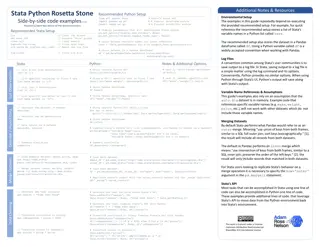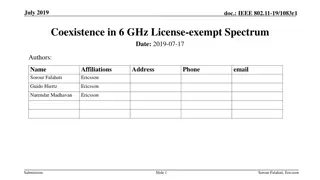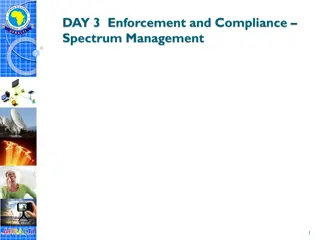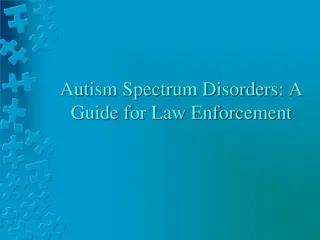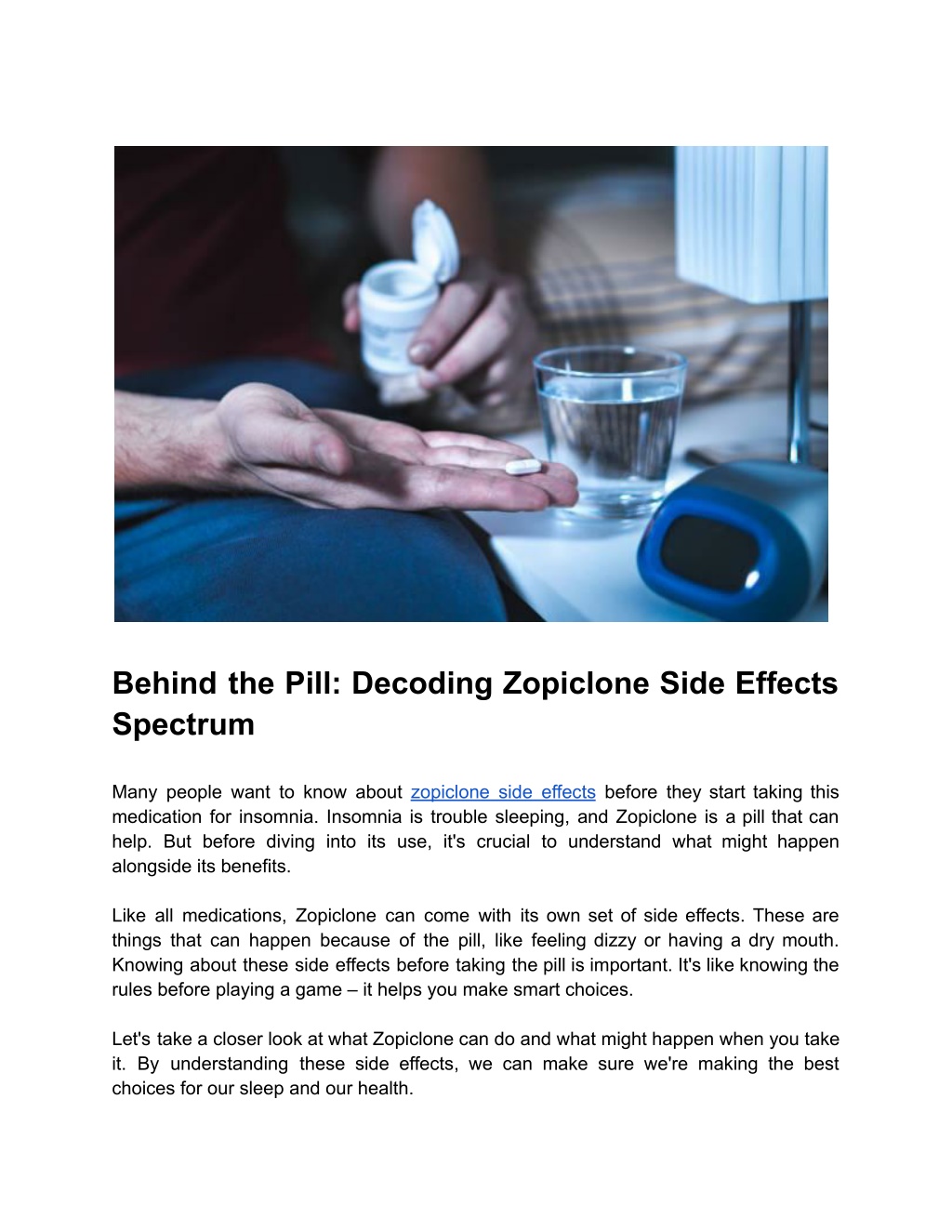
Behind the Pill_ Decoding Zopiclone Side Effects Spectrum
Many people want to know about zopiclone side effects before they start taking this medication for insomnia. Insomnia is trouble sleeping, and Zopiclone is a pill that can help. But before diving into its use, it's crucial to understand what might happen alongside its benefits.
Download Presentation

Please find below an Image/Link to download the presentation.
The content on the website is provided AS IS for your information and personal use only. It may not be sold, licensed, or shared on other websites without obtaining consent from the author. Download presentation by click this link. If you encounter any issues during the download, it is possible that the publisher has removed the file from their server.
E N D
Presentation Transcript
Behind the Pill: Decoding Zopiclone Side Effects Spectrum Many people want to know about zopiclone side effects before they start taking this medication for insomnia. Insomnia is trouble sleeping, and Zopiclone is a pill that can help. But before diving into its use, it's crucial to understand what might happen alongside its benefits. Like all medications, Zopiclone can come with its own set of side effects. These are things that can happen because of the pill, like feeling dizzy or having a dry mouth. Knowing about these side effects before taking the pill is important. It's like knowing the rules before playing a game it helps you make smart choices. Let's take a closer look at what Zopiclone can do and what might happen when you take it. By understanding these side effects, we can make sure we're making the best choices for our sleep and our health.
Mechanism of Action Let's break down how Zopiclone helps you sleep. When you take Zopiclone, it works in your brain, targeting special spots called GABA receptors. These receptors are like switches that help calm your brain activity, making you feel relaxed and sleepy. Zopiclone works a bit like benzodiazepines, another type of medication that helps with sleep. But here's the thing: Zopiclone is more picky about which switches it turns on. It aims for certain GABA receptors, which helps it do its job of making you sleepy without causing as many side effects as benzodiazepines might. So, in simple terms, Zopiclone's job is to boost the effects of these calming switches in your brain, helping you drift off to dreamland. Understanding how it does this helps doctors prescribe it better and helps you know what to expect when you take it. Common Zopiclone Side Effects When you take Zopiclone, some things might happen to your body, and a lot of people experience it. These are called Zopiclone side effects. Here are the common ones: 1. Drowsiness: You might feel sleepy during the day, even after a good night's sleep. It's like you're struggling to keep your eyes open, no matter how hard you try. 2. Dizziness: Some folks feel a bit woozy or like the room is spinning after taking Zopiclone. It's like being on a merry-go-round that won't stop, making you feel off-balance. 3. Dry Mouth: Zopiclone can make your mouth feel really dry as if you haven't had a sip of water in ages. It's like your tongue is stuck to the roof of your mouth, and no amount of water seems to help. 4. Changes in Taste Perception: Sometimes, Zopiclone can mess with how things taste. Your favorite foods might not taste as good, or you might notice weird flavors in your mouth. It's like your taste buds are playing tricks on you, making everything taste different. Less Common Side Effects Along with the common side effects, some other things might happen, but they're not as common. Here are a few:
1. Gastrointestinal Disturbances. Some people might get a bit of a tummy ache, feel sick, or even have diarrhea after taking Zopiclone. It's like their stomach is upset and doesn't agree with the medication. 2. Memory Problems. Zopiclone can sometimes make it hard to remember things or stay focused. It's like your brain is a bit foggy, and you can't quite think clearly. 3. Allergic Reactions. Although rare, some folks might have an allergic reaction to Zopiclone. This could include things like rashes, itching, swelling, or trouble breathing. It's like your body's immune system is overreacting to the medication. Serious Side Effects Sometimes, but rarely, Zopiclone can cause some really serious problems that need urgent medical attention. These are things you shouldn't ignore. Here's what to watch out for: Hallucinations. This is when you see, hear, or feel things that aren't real. It can be pretty scary and confusing. If you start experiencing hallucinations while taking Zopiclone, get help from a doctor right away. Confusion. Feeling mixed up or not being able to think straight can happen with Zopiclone. It's like your brain is in a muddle. If you or someone you know feels confused after taking Zopiclone, it's important to see a doctor as soon as possible. Difficulty Breathing. Sometimes, Zopiclone can make it hard to breathe properly. You might feel like you can't catch your breath, or your chest feels tight. If you're struggling to breathe after taking Zopiclone, call for emergency help right away. Long-Term Effects When people have trouble sleeping, they might turn to medicines like Zopiclone for help. However, using Zopiclone for a long time can cause some serious problems. Understanding Dependency If you take Zopiclone regularly, you might start to rely on it too much. This means your body gets used to having it, and you might feel bad when you try to stop.
Tolerance Development After using Zopiclone for some time, your body might get used to it, so you need more to get the same effect. This can be risky because taking more Zopiclone can cause more problems and make it harder to stop taking it. Rebound Insomnia When you suddenly stop taking Zopiclone, your sleep might get even worse than before. This is called rebound insomnia. It's tough because it can make you feel like you need to start taking Zopiclone again. Reducing Risks To make sure using Zopiclone for a long time is safe, it's important to stay in touch with your doctor. They can check if Zopiclone is still helping you and offer other ways to improve your sleep without relying too much on medicine. Conclusion To sum it up, understanding zopiclone side effects is crucial before starting the medication. From feeling drowsy to potentially serious issues like hallucinations, being aware of these possible outcomes is key. When using Zopiclone for an extended period, dependency, tolerance, and rebound insomnia become significant concerns. Keeping in touch with your doctor is essential to manage these risks and explore alternative solutions for better sleep. Remember, if you experience any concerns about Zopiclone or have questions, don't hesitate to seek medical advice. Your well-being is paramount, so stay informed and take proactive steps towards healthier sleep habits.

















